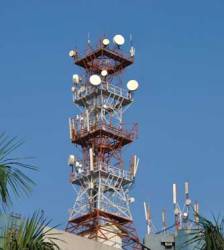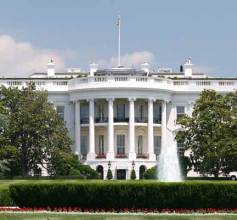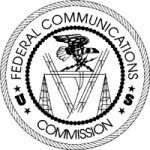
[Updated August 15, 2013] Investors led by Harbinger Capital Partners have filed a $1.9 billion lawsuit against a trio of GPS receiver manufacturers over LightSquared, a now bankrupt firm that still hopes to build a wireless broadband network across the United States.
[Updated August 15, 2013] Investors led by Harbinger Capital Partners have filed a $1.9 billion lawsuit against a trio of GPS receiver manufacturers over LightSquared, a now bankrupt firm that still hopes to build a wireless broadband network across the United States.
The investors are seeking compensation for losses incurred when the Federal Communications Commission (FCC) denied LightSquared permission to build its wholesale wireless broadband communications network. They allege that the three firms — Deere & Company, Garmin International and Trimble Navigation, plus the U.S. GPS Industry Council and the Coalition to Save Our GPS — are liable for failing to warn them about the problems that have now forced a halt to the project.
The filing argues that GPS manufacturers knew of plans to use the frequencies in question for a ground-based network, but did not tell the investors the network would overload receivers, irreparably hampering GPS service. The plaintiffs also argue that GPS manufacturers were effectively designing their devices to improperly use spectrum owned by LightSquared — creating a problem for which there was no practical solution once thousands of legacy GPS receivers were in place. Had they been informed of these problems, the plaintiffs argue, they “never would have incurred these costs, or made their subsequent investments in the new network.”
The GPS community has long argued that the frequencies in question were licensed strictly for satellite-to-ground communications and any terrestrial operations were intended only to supplement such a service. Because signals from a satellite are relatively weak by the time they reach the ground they do not create interference or overload issues. Problems only arose when the FCC agreed to allow, albeit conditionally, terrestrial-only LightSquared operations within the previously satellite-only frequency band.
"The Harbinger lawsuit is an attempt to avoid responsibility for the consequences of LightSquared’s plan to build a high-powered mobile network in spectrum adjacent to GPS, despite prior FCC restrictions,” said Jim Kirkland, vice president and general counsel of Trimble, in a prepared statement. “The lawsuit is lacking in merit and we will vigorously defend it.”
The interpretation of the events leading up to Harbinger’s investment choices and the withdrawal of the FCC’s conditional waiver last February may well become the focus of the case. Harbinger asserts that the deliberations leading up to the decisions that paved the way for the shift to a terrestrial network was open and known to all and the GPS community had ample opportunity to raise questions. But during at least one critical period prior to March 2010 when the firm’s plans were made more clear, the discussions between LightSquared and the FCC were kept confidential under a protective order issued by the FCC itself.
Harbinger also questioned the GPS community’s approach to FCC-mandated tests that took place in 2011, overseen by LightSquared with participation from the GPS industry. The defendants “lulled Plaintiffs and others into thinking there might be a real solution by conducting “testing” of possible “solutions,” the complaint says.
Not all the tests were done in a way that would provide accurate assessments, alleges Harbinger. “Defendants undermined these tests in various ways, including by providing for testing obsolete and overly sensitive devices. Defendants then used these test results to make it appear they only recently discovered the “problem,” even though Defendants now admit there was no “problem,” only a conscious plan to design their products to operate in the LightSquared spectrum.”
“More than a year of intensive study, involving government as well as private GPS users, determined that LightSquared’s proposed network would have interfered with millions of GPS devices used for a wide variety of critical purposes,” Kirkland said in his statement. “Government agencies that objected to interference included the Federal Aviation Administration, due to risks to aviation safety, and the Department of Defense. This interference resulted from the characteristics of LightSquared’s new plan for use of satellite spectrum, not the design of GPS devices. The responsibility for Harbinger’s losses rests squarely with Harbinger.”
The suit was filed just days after Harbinger sued Dish Network Corp. and its chairman Charlie Ergen for $4 billion over allegedly improper purchases of LightSquared debt, according to news reports. Ergen, who recently failed in a bid to buy Sprint, reportedly bid over $2 billion last month to buy LightSquared.
Deere announced record third-quarter earnings of $997 million yesterday (August 14, 2013) and and net income for the first nine months of the year of $2.73 billion. Last month Trimble reported second quarter 2013 revenue of $576.3 million, up 11 percent as compared to the second quarter of 2012. GAAP operating income for the second quarter of 2013 was $64.9 million, or 11.3 percent of revenue, compared to 11.4 percent of revenue in the second quarter of 2012.






